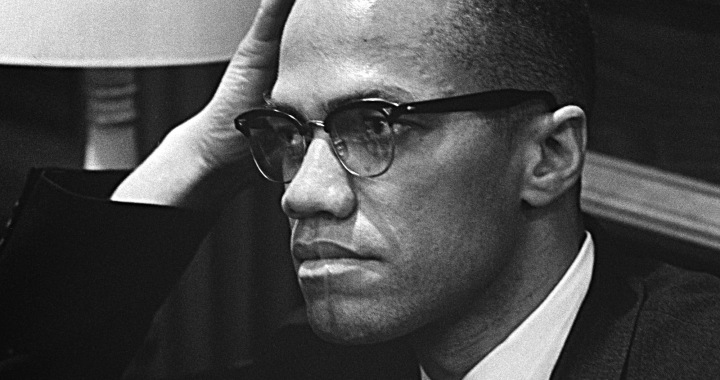Sometime in the mid-60′s, when America’s black-led freedom movement was at the center of daily news, a white man asked Malcolm X why he did not accept and teach the nonviolence of Martin Luther King. Malcolm replied that he had not experienced a great deal of nonviolence in America. “If you believe in nonviolence, ” he said, “why don’t you go teach some nonviolence to white people.”
More and more, I’m convicted that Malcolm’s challenge is something of a call to me. Gandhi taught nonviolence to colonized Indians, which was a great gift to the world. King demonstrated the power of nonviolent love at the heart of the black church’s experience in America. This, too, was a gift.
But I am not Gandhi or King. Still, the longer I live and pray against the realities they sought to change, the more convinced I am that white repentance–white conversion–is absolutely necessary if we are to become the beloved community they point us toward.
Maybe the most important thing is for some of us to learn what nonviolence means for white people.
Here’s a start on my working list:
1) Demystify yourself of the myth of the white hero. I went to see Lincoln after Thanksgiving, and I enjoyed it as a story. It’s well told. Spielberg is good at what he does. But let’s be honest: Lincoln didn’t free the slaves because he knew from the start that it was his moral duty, come hell or high water. (The first meeting Lincoln ever held at the White House with African-Americans was to discuss a plan to move black folks back to Africa.) And I don’t mean to disrespect Mr. Lincoln. Lyndon Johnson didn’t stand before Congress and say “We Shall Overcome” out of the goodness of his heart either. In his case, we have the White House tapes to prove it.
White men in American history are not Messiah figures. We’re Pharaoh in this story. At best, we “harden not our hearts, ” step down from the throne, and admit that something’s wrong with the whole system.
Related: The Pollution of Racism – What White People Can Do About Racism
2) Get in touch with your hidden wound. On the wall here at Rutba House, we have a quote from the aboriginal sister Lila Watson: “If you’ve come here to help me, you’re wasting your time. But if you’ve come because your salvation is bound up with mine, then let us walk together.” Sure, we’ve got to give up trying to be the hero. But, more than that, we have to learn to see that addressing histories of oppression and systems of injustice is about liberating our own souls from the death-dealing, schizophrenic patterns that we’ve inherited. White people have to learn how to name the ways racism has hurt us too.
3) Decide who you’re going to follow. Part of learning the new way of nonviolence is learning to listen to the leadership of people who’ve experienced the “other America.” White people have to figure out how to put this into practice. Join your local NAACP. Listen to some of our best thinkers and leaders today: Michelle Alexander and Cornel West; James Forbes and Marian Wright Edelman; William Barber and Bernice Johnson Reagon; Vincent Harding and Diane Nash. Go where these people are leading, even if you don’t yet understand why it matters to you.
4) Don’t call the police. In all of our cities today, we’re experiencing a new attempt at integration in the form of gentrification. John Perkins often says that integration was that time between the day when the first blacks moved into a neighbor and the day when the last whites moved out. But in scores of neighborhoods today, it’s us white folks moving back in. And when we feel threatened, we do what we’ve been told to do. We call the police.
But here’s the problem: when we call the police on neighbors we haven’t taken the time to know, we participate in a system of mass incarceration that sends one out of three black men from neighborhoods like ours to prison.
I’m not saying that we don’t have neighborhood safety concerns that we all have to work on. I’m saying that we cannot trust the institutionalized violence to fix our neighborhoods for us. So before you call the police, get to know your neighbors, join the community association, and learn why some people have legitimate reasons to not trust the police.
5) Don’t confuse nonviolence with powerlessness. Maybe the worst thing white people can do in neighborhoods like ours is to act like we have no power. We need to repent of the ways we’ve abused power. We have to listen to people who’ve had a very different experience. We must learn to follow. But we also need to tap the resources we have access to, call on friends we know, leverage our generational wealth, and spend our social capital on behalf of our friends and neighbors. Anything less than real redistribution is disingenuous. Our friends will notice.
Well, that’s a start. What would you add to this list?
—
Jonathan Wilson-Hartgrove is the author of The Wisdom of Stability: Rooting Faith in a Mobile Culture and Common Prayer. He is an author, speaker, and activist who currently resides in Durham, NC at the Rutba House. You can reach him at his website, www.jonathanwilsonhartgrove.com
This post originally appeared on Jonathan’s blog, The Everyday Awakening

